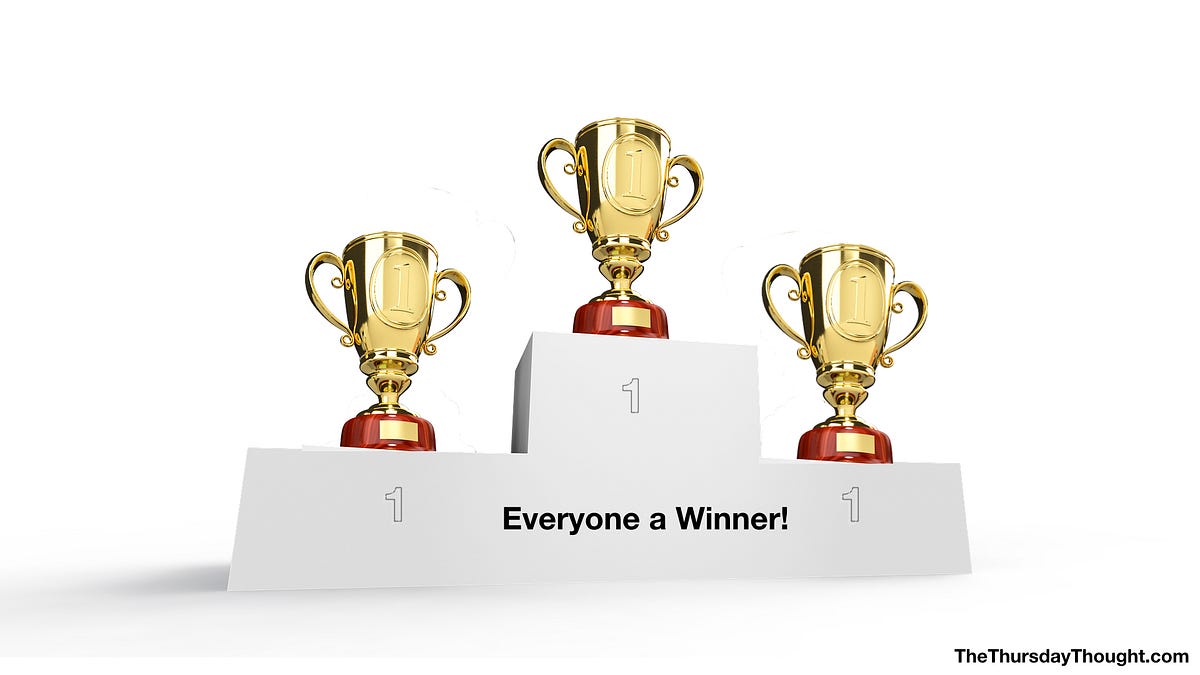
“When everyone is super, no one will be.” — Syndrome (The Incredibles)
resilience — re·sil·ience — noun
1: the capability of a strained body to recover its size and shape after deformation caused especially by compressive stress
2: an ability to recover from or adjust easily to misfortune or change
This Thursday Thought has been marinating for quite some time. The focus is the development of resilience, a skill that is essential to our survival. Resilience is developed in our childhood, by overcoming challenges. If we remove the challenges confronting our children by smoothing the way in front of them like lawnmower parents, how can they possibly learn? Lawnmower parenting is done with great intentions with parents wanting their children to have a more comfortable life than they themselves might have had, but these good intentions often backfire.
Some schools have “reframed” their annual sports days, instead of having a natural hierarchy in which the winners win the medals, they now give all children a medal. The consequence is that none of the children value the medals, they have not earned them. The intention is that the children who are weaker or may be slower developmentally or have co-ordination issues do not feel excluded. That is an admirable intention, but that is not how the real world works!
Some schools and universities have removed clapping/applause and cheering as a form of commendation in favour of “Jazz Hands”. This is seen as promoting a disrespectful atmosphere and irritating those with autism or sensory issues. Another great intention, but that is not how the real world works!
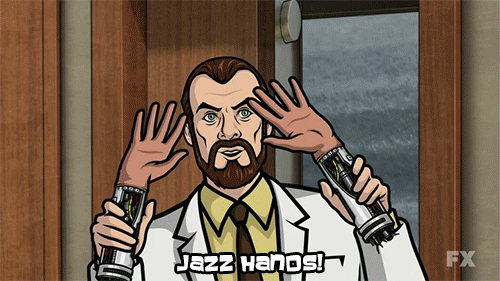
I am fortunate to have had fantastic career as a professional rugby player. I witnessed many players much more talented than me totally fail as professionals. The common denominator of their failure was their overly-involved parents, who built them up. They had been schoolboy heroes, winning game after game single-handedly through their natural talent. Success often breeds complacency. In addition, these players received preferential treatment from inferior coaches. Most important, these players did not develop the skill of hard work, discipline and resilience. Resilience comes from failure, from overcoming challenge, from setbacks. When the bar was too low for their talent level, they cruised through the easy games. When they became professionals due to their innate talent, they were suddenly surrounded by talent plus discipline. Talent plus discipline is always stronger than either talent alone or discipline alone. These players needed some early resistance, to learn resilience, but it never came.
There are record levels of anxiety in the world. Many young adults are struggling to find their sense of identity, others report high levels of expectation from parents, peers and society. In a world where basic needs are met, food, shelter, sustenance, why are we witnessing this? This Thursday Thought looks at some possible reasons.
Unintended Consequences, Bye-Bye Birdy
Many parents, guardians and peers may intend to help children by smoothing the pathway in front of them. The consequences of tinkering with natural developments can be drastic.
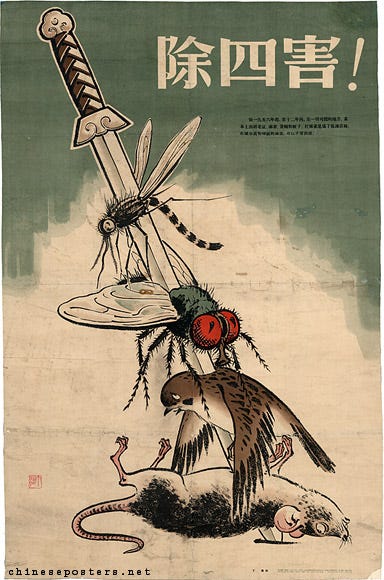
To illustrate this consider the “Four Pests” campaign introduced by Chairman Mao (the founding father of the People’s Republic of China) in 1958. This campaign aimed to eradicate the pests deemed responsible for the transmission of pestilence and disease: the mosquitos responsible for malaria; the rodents that spread the plague; the flies that spread disease and the sparrows that ate grain seed and fruit. The whole of China waged war against the sparrows, nests were destroyed, eggs were broken, and chicks were killed. Within a few years, sparrows were nearly extinct with unexpected and catastrophic consequences.
While the rationale was that killing the sparrows would mean there would be more grain and fruit for human consumption, it was overlooked that the bulk of their diet came from insects. A particular favourite of the sparrow was the locust. With no natural predator to tame the locust population, the locusts soared. A plague of locusts wreaked havoc on the Chinese vegetation. This new imbalance led to mass deforestation and the widespread use of pesticides to kill the locusts. Mao eventually called off the sparrow witch hunt and reintroduced the population. By that stage, the damage had been done and the well-intended interference fuelled the raging Great Chinese Famine.
Good intention, drastic consequence.
Immunity
Our immune systems develop disease-fighting cells to destroy disease-causing microbes. Our bodies gain immunity in both natural and acquired ways. The natural ways come when we receive antibodies in utero (we may also gain antibodies during childbirth and from mother’s milk.) The acquired ways develop with learned immunity over time: when we get sick, our body learns how to fight that sickness. When that disease invades again, our body is prepared for that disease and can quickly produce antibodies to fight infection. We can also gain immunity from vaccines, which introduce modified microbes that are already killed so we don’t get sick. The immune system doesn’t know these microbes are “disabled” and builds up antibodies against the disease. Should the disease attack, our body is ready to fight the disease.
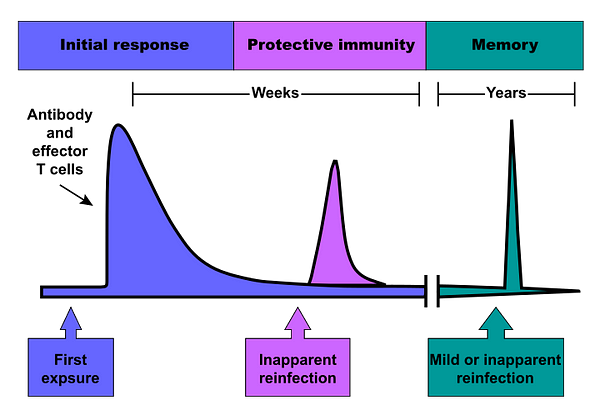
Immunity eventually goes away, so we need a new vaccine after a period of time to top up, so to speak. Also, different people have different levels of immunity to certain diseases, so some people get sick more often than others.
For the importance of this Thursday Thought our bodies respond much faster and stronger the second time they experience an antigen. We get stronger with exposure.
In summary, we are born with a certain level of resistance, let’s call that “Nature” resistance. Then we must develop further resistance using “Nurture” resistance.
What is really fascinating is that the way we strengthen immunity is similar to the way we develop strength, through “resistance” training. Let’s look at that next.
The Overload Principle
The overload principle exists in strength/resistance training. It states that when you add greater than normal stress or load on a muscle, a muscle will adapt to accommodate that stress or load. If you do it once, you will shock your muscles and they will be sore for several days after. If you do it for several days and then stop, little or no change will occur. When you do this regularly over a longer period of time, the body will adapt to the stimulus, regenerate and grow.
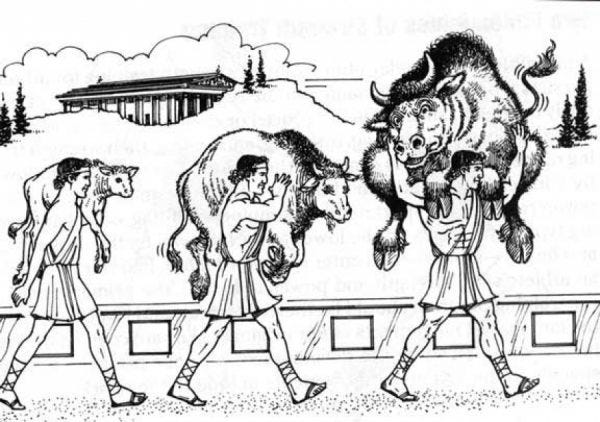
I benefited hugely from understanding this as a professional player, you must first break down the muscle to build it. As Picasso said: “Every act of creation is first an act of destruction.” Just as immunity eventually goes away, so too will muscle growth plateau if we don’t add more weight and vary the training routine.
We work so hard to get ourselves into a position of “growth”, where we pass the pain threshold. Passing the pain threshold is where the growth happens. It is like a rite of passage.
Resilience
When basic human needs are met, one of the hardest tensions we must manage with children is ensuring their lives are comfortable, but not too comfortable. I discuss that challenge on this week’s innovation show with Max Strom.
I tell my sons that sickness trains their bodies to fight disease. This way they see illness as a way to get stronger. They understand that when they skin their knees, the skin grows back thicker — developing a thick skin. They are programmed with the mantra “fall down seven times, get up eight.” Even with all this, I constantly question if I am being too soft on them. I want to equip them with the mental tools they will need, but want them to relish life.
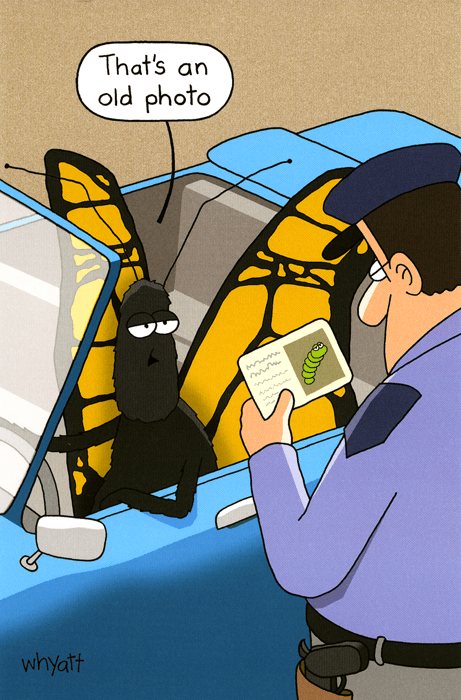
I mentioned witnessing players fail when they became professional after breezing through their early careers as schoolboy heroes. In a similar fashion, some players became even stronger when they failed mid career, one of the hard things about professional sports is that you fail publicly. That public failure can make you or break you, the outcome depends on your mindset, on your reaction.
Do you let it beat you or do you let it teach you? The best players in the world all went through a mid-career metamorphosis, whether that was an injury, being dropped for a sustained period of time or even a personal tragedy. This “challenge” is part of their success, it is the pain threshold that confronts us all, we either take it on or we give in to it.
“The mind always fails first, not the body. The secret is to make your mind work for you, not against you.” — Arnold Schwarzenegger
I have noticed a clear pattern from interviewing global leaders weekly on the innovation show over the past three years, every one of them were confronted by a challenge, a dragon to be slain. The successful ones took it on and continue to do so, it never goes away, you get the good and the bad, they are made of the same thing.
Resilience makes it easier to bounce back when we are feeling overwhelmed. Allowing our children to overcome challenges lays the groundwork for building resilience. We need to let them fall (safely) so they learn to get back up. We need to let them learn that there are winners and losers, because there are hierarchies in life and hierarchies give us something to strive for. We need to ensure they understand they must choose something they are passionate about, but then do the work to achieve it.
“The dictionary is the only place where success comes before work.” — Mark Twain
Building walls around ourselves, our children or others to keep them safe does not keep them safe, walls don’t work that way. Walls can keep them locked in, but walls can be doors too.
“Every wall is a door.” — Ralph Waldo Emerson
THANK YOU FOR READING, PLEASE HIT A LIKE OR SHARE THIS SO OTHERS MAY SEE IT
This week’s innovation show is EP 126: A Life Worth Breathing with global speaker, teacher, and author Max Strom
“The more light you shine into the world, the more you can help others with your very presence.” — Max Strom
We can do more with our lives. We all know it, we all wish for it, but just how to do it — that eludes us. As one man describes his life, “In the morning I can’t wake up, in the day I am bored, in the evening I am tired, and at night I can’t sleep.” Even if we want to change, we’re not sure which path to take, and if we do find our way, we are usually too emotionally wounded, physically unhealthy, or mentally stressed to take the steps we know would transform our desperate life into a meaningful one.
We discuss:
- Overwork
- Work addiction
- The power of breathing
- Letting go of anger
- Fear of death
- Gratitude
- Mindfulness
- Resilience in children
- and much more
Have a Listen:
Soundcloud https://lnkd.in/gBbTTuF
Spotify http://spoti.fi/2rXnAF4
iTunes https://apple.co/2gFvFbO
Tunein http://bit.ly/2rRwDad
iHeart http://bit.ly/2E4fhfl
More about Max here https://maxstrom.com/
Breathe to heal Tex Talk: https://lnkd.in/dEUHxxe
#Leadership #Mindfulness #MaxStrom #Resilience